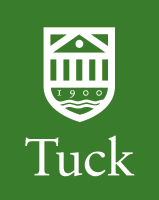
Decarbonize
Measure emissions
- To understand the Tuck community’s carbon footprint, TSID starts with the fundamental step of measuring and monitoring the school’s current emissions. In order to have a comprehensive view of the current state, dedicated teams of students focus on developing measurement strategies to quantify scope I,II, and III emissions. This is an ongoing process. Each year, the team will internally report findings to share the data with future student leads. Our goal is to continuously revisit our calculations and find better ways to measure emissions to develop more efficient and actionable reduction strategies.
TSID aims to propose strategies to reduce Scopes I and II emissions entirely, and Scope III emissions as available.
Scope 1: Direct emissions from owned or controlled resources.
Scope 2: Indirect emissions from purchased energy.
Scope 3: Indirect emissions caused by Tuck’s operations, like traveling and events.
Identify solutions
- Emissions reductions strategies. After identifying main sources of emissions, the TSID team looks for solutions to lessen the amount of GHG generated in daily operations. This offers students an experiential opportunity to identify and design suitable reduction strategies for the school, ranging from changes in daily activities to more ambitious strategic initiatives. Students are encouraged to connect with experts in the industry to learn about how diverse leaders are articulating their corporate transition.
Take Action
- Each year, a group of student directors will build a transition plan that includes a roadmap to achieve the goals of the initiative. These include reduction and offsetting objectives as well as broader efforts to grow the reach and impact of TSID. Students are encouraged to be creative, and think about new ways in which this initiative can grow and be more impactful in the future.
Educate
In addition to the experiential learning of the students involved in TSID will gain, TSID also aims to educate the Tuck student body through publishing sustainability reports, consolidating cutting edge research, and hosting talks.
Additionally, TSID was designed with the broader community in mind, extending beyond the walls of Tuck to Dartmouth, the Upper Valley community and global alumni networks. The program looks to embrace and support community growth and health by carrying out activities and programs to raise environmental awareness and to empower involved parties to take action.
Invest
Carbon offset investments are a convenient and effective way to reduce global greenhouse gas (GHG) emissions beyond what we can achieve through emission reduction projects and individual lifestyle choices. Through our collaboration with organizations like Cool Effect, TSID participates in the purchase of carbon credits and/or the funding of projects that i) build renewable resources ii) remove carbon directly from atmosphere and iii) adapt existing technologies to prevent or reduce emissions.

